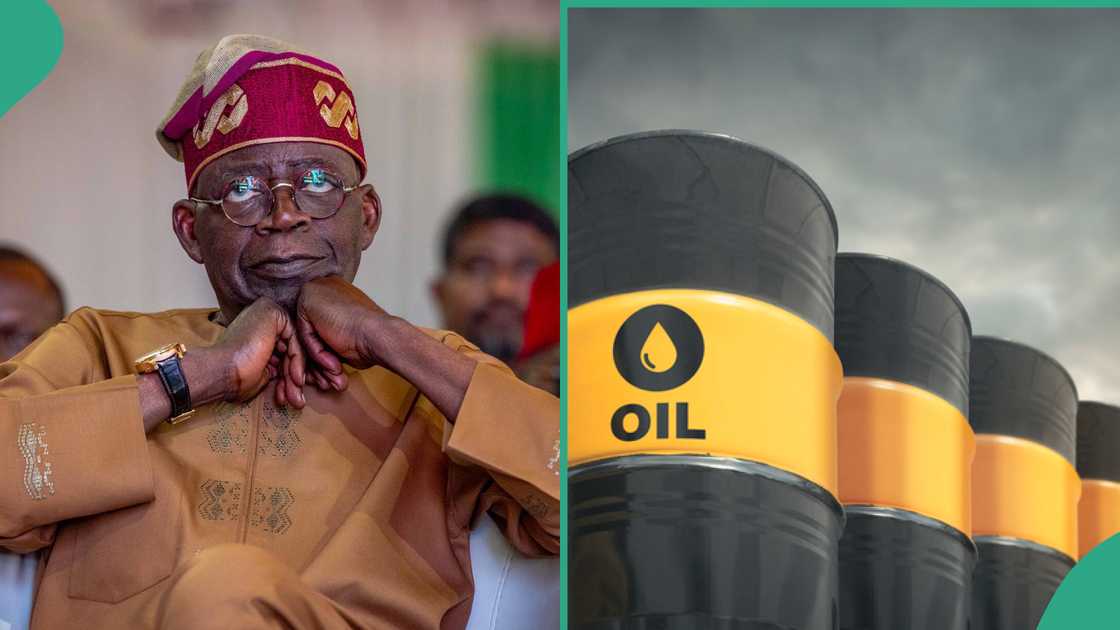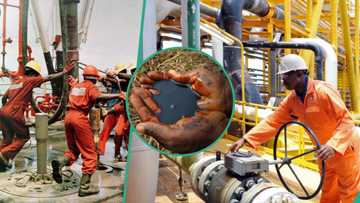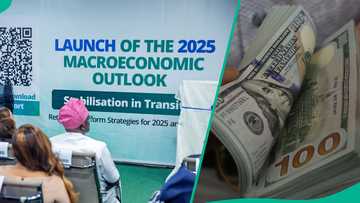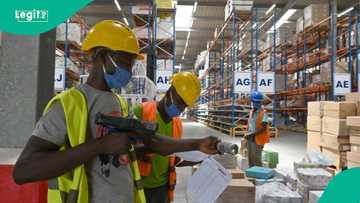More Money for Tinubu’s Government As Oil Prices Rise to 4-Month High
- Oil price, the federal government's major source of revenue, is currently trading at a four-month high
- It is now up to the Nigerian Upstream Petroleum Regulatory Commission (NUPRC) to ensure oil companies produce enough
- There is also the challenge of crude oil theft, and addressing this could help the government meet its budget plan
Don't miss out! Join Legit.ng's Sports News channel on WhatsApp now!
Legit.ng journalist Dave Ibemere has over a decade of business journalism experience with in-depth knowledge of the Nigerian economy, stocks, and general market trends.
The price of Brent crude, Nigeria’s benchmark oil grade, extended its rally for the fourth consecutive session on Monday, climbing above $81 per barrel.
The current crude oil price is at its highest level in the last four months, offering hope to the Nigerian government for increased revenue.

Source: Getty Images
Checks on Tuesday showed that Brent crude rose $1.48 or 1.9% to $81.96 per barrel, marking its highest level since August 27, 2023.

Read also
OPEC may reject Nigeria’s planned 2 million barrels per day oil production projection, report says
The increase suggests Nigeria's 2025 budget projections of an average oil price of $75 per barrel could be realistic.
Prediction for crude oil prices
BusinessDay reports that the global oil market is bracing for further upward pressure, with Brent crude prices potentially exceeding $90 per barrel.
This prospect is driven by the new U.S. sanctions targeting Russia’s oil industry and concerns over declining Iranian oil production.
However, Goldman Sachs projects Brent crude prices could surpass $85 in the near term, with further increases likely if reductions in Russian production coincide with drops in Iranian output.
Why are oil prices on the rise?
The United States has not introduced its most comprehensive sanctions package against Russia’s oil sector.
Announced by President Joe Biden, the measures aim to cut Russia’s revenue streams while strengthening Ukraine’s negotiating position.
The sanctions target Russian oil producers and vessels, affecting an estimated 1.7 million barrels per day in 202, about 25% of the country’s crude oil exports.
Rising oil prices implication for Nigerians
For Nigeria, higher oil prices present both good and bad news.
The good news is that oil accounts for 70% of Nigeria's revenues and a large share of its foreign exchange earnings. Higher oil prices mean more money.
President Bola Tinubu’s proposed N47.9 trillion 2025 budget heavily relies on oil revenues, projecting 56% from the oil sector and 43% from non-oil sources.
The budget assumes oil prices above $75 per barrel and a daily production rate of 2.06 million barrels.
On the flip side, with Nigeria now removing the fuel subsidy, high global prices will increase petrol prices.
Legit.ng reported that filling stations sell petrol between N925 and N1,020 per litre.
Depots set new petrol price
Ealier, Legit.ng reported that oil depots have adjusted their ex-depot petrol prices following a rise in oil prices.
The increase in the cost of ex-depot prices could lead to changes in petrol prices in the country.
In recent weeks, petrol prices at filling stations have been below N1,000 at major outlets, but this will change.
Source: Legit.ng




